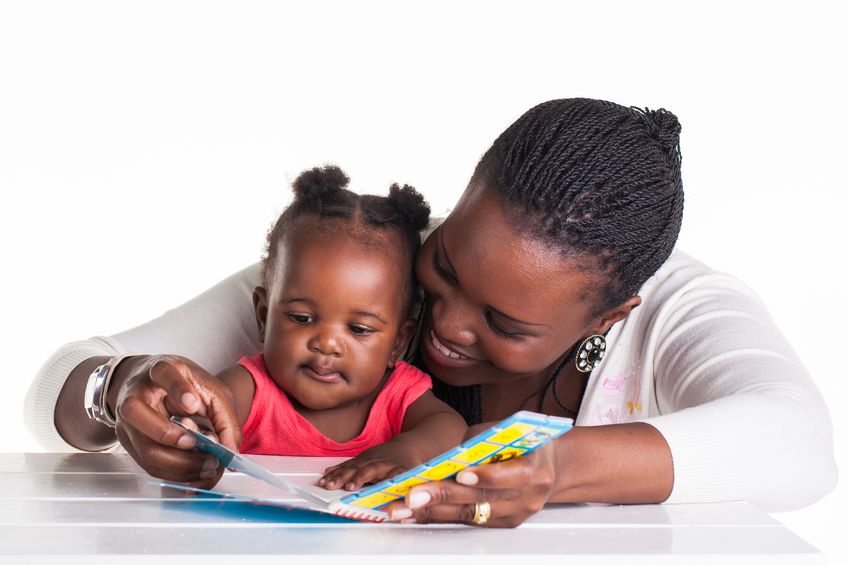Decoding Attachment Parenting

Attachment Parenting is a powerful strategy to promote infant socioemotional and brain development while delighting both parent and child. According to Dr. Darleen Claire Wodzenski of Orchard Human Services, children who are deprived of stable and sensitive parenting are at risk of developing a heartbreaking attachment disorder, such as RAD or DSED. But just how does this new parenting trend achieve such lofty goals? The first step to decoding Attachment Parenting is to define the human capacity for Attachment.
The process that allows a newborn to grow into a social being is quite complex. Newborns are attuned to the voices of their parents, quickly developing a preference for the primary caregiver(s). But what exactly is happening in the baby’s brain that allows for Attachment formation?
1) The newborn learns to seek comfort, nurturance, and care from the parent.
2) The infant develops a sense of trust in the parent and safety in the world.
3) The infant responds to the close face-to-face interaction with the parent, as mother/father and child coo back and forth, copying each other’s facial expressions.
4) When crying or upset, the infant sees a compassionate or caring expression on the face of the parent.
5) When in distress, the infant learns that the parent responds to crying and wailing (as with hunger, thirst, or pain).
6) The infant feels intense feels of love while in the presence of the caring and compassionate parent.
These six steps, while seemingly obvious, are the foundation of Attachment formation, and contribute the backbone to Attachment Parenting. As a result of accommodating the infant’s learning process in this way, little tiny babies develop the brain structures and neural networks for the following developmental tasks:
a) trust and be trusted
b) love and be loved
c) show compassion and seek others who are compassionate
d) feel safe in the world (and later contribute to safety of others)
The way Attachment Parenting achieves these monumental developmental goals of early childhood is through consistent and structured infant care. Attachment Parents seek to nurture and comfort their children, recognizing that trust and safety depend upon a stable parent-child interaction. The Attachment Parenting model was created originally by Dr. Sears to align with child developmental processes.
Another hallmark of Attachment Parenting is sensitive and responsive parent-child interactions. Infants benefit from face-to-face interactions that allow the infant to gaze into the face of the parent. The baby has plenty of opportunity to view the facial expression of the parent during various situations. Over time, the infant identifies facial expressions with emotional states of the parent, such as anxiety, upset, and joy.
The quality of parental attention is critical to proper development of Attachment in the child. Attachment Parents recognize that they must respond appropriately to the many voices and moods of their child. Attachment Parenting requires the parent to respond to hunger or pain with compassion and sensitivity. They must respond to playfulness with an engaging response. They must comfort the child who is startled or afraid.
As parents consistently meet the infant’s specific needs, the baby develops a sense of trust and safety that leaves room for further growth and development. As the parent-child interaction becomes increasingly more complex, the baby begins to develop skills and awareness that will support relationships across the lifespan.
Attachment Parenting recognizes the importance of these developmental milestones in the life of the child. Attachment Parents recognize that the early weeks and months are a critical time for the baby … holding, cuddling, and nurturing their infants to promote healthy brain development. Loved, secure, and confident infants have the best shot at living a successful and happy life.
 Darleen Claire Wodzenski, MA ESE, MA CMHC, PhD Psychology is a mother, grandmother, and Clinical Mental Health Counselor who specializes in child development, learning, and education. Her areas of focus include Attachment Development for RAD, DSED, Attachment Disorder as well as Autism Spectrum Disorder ASD, and Learning and Neurodevelopmental Challanges.
Darleen Claire Wodzenski, MA ESE, MA CMHC, PhD Psychology is a mother, grandmother, and Clinical Mental Health Counselor who specializes in child development, learning, and education. Her areas of focus include Attachment Development for RAD, DSED, Attachment Disorder as well as Autism Spectrum Disorder ASD, and Learning and Neurodevelopmental Challanges.
She provides direct services around the Metro Atlanta area including Alpharetta, College Park, Cumberland, Hiram, and Marietta. She can be reached at 770-686-0894 or by email at D@OrchardHumanServices.org








